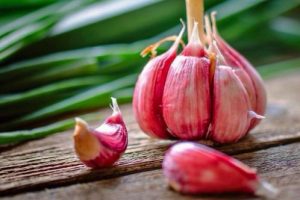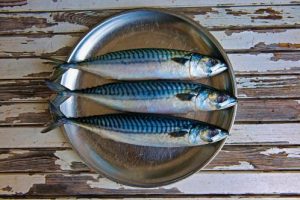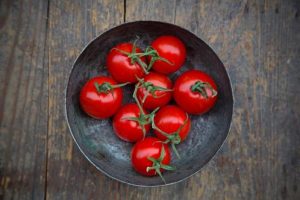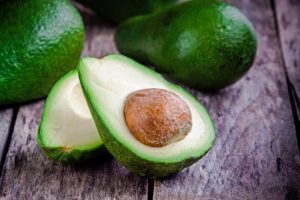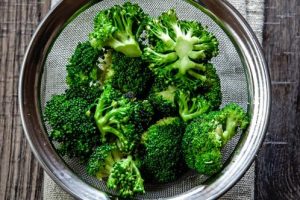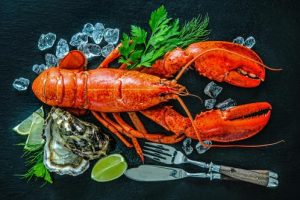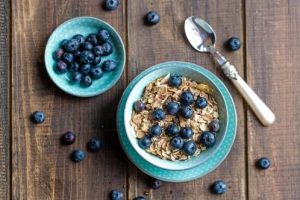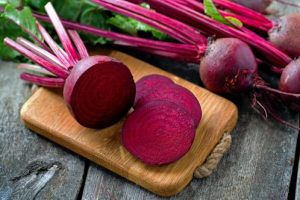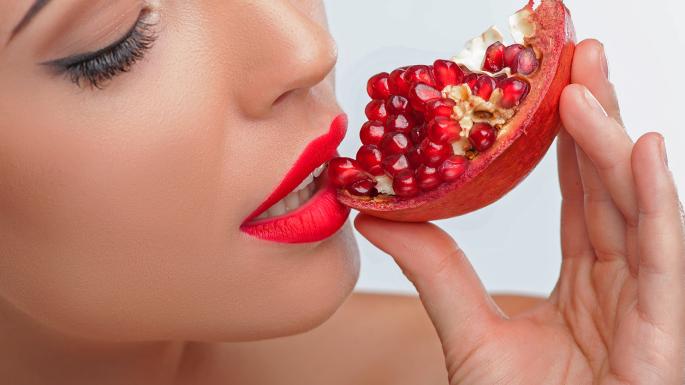
The top 50 anti-ageing foods
Humans, in general, dread getting older. The majority of us would like to remain as young as possible. However, it’s not humanely possible to stop aging unless you do some cosmetic surgery every now and then. Unfortunately, not everybody has the financial means to pursue these therapies. This is where eating healthy matters. You should try these staple foods, particularly if you’re concerned about staying young.
Another alternative is to use creams and anti-ageing moisturizers such as city beauty multi sculpting cream or other similar creams. These creams are well-known for their anti-ageing properties and therefore continuous usage of these creams might help rejuvenate your skin. However, for now, let’s look at some anti-ageing foods:
1 Salmon
The omega-3 oils in salmon will keep skin looking plump and youthful. Effectively, the water in skin cells is sealed in by the oils. Salmon offers good protection against heart disease because it reduces inflammation, is a great source of protein and provides high levels of omega-3 fatty acids as well as astaxanthin, an antioxidant. Some research also suggests it can prevent eyesight degeneration. It also contains vitamin D, which plays an important role in bone strength and immunity. Choose wild salmon over farmed as it tends to have less saturated fat.
2 Pumpkin seeds
Pumpkin seeds can help to boost the libido. They contain arginine, an amino acid that increases the levels of nitric oxide in the body, which in turn increases blood flow to the extremities. The seeds also contain zinc, which can give your skin a boost by reducing the severity and duration of any breakouts or acne. Zinc aids testosterone production and helps to stop the prostate gland becoming enlarged – a problem that affects about 40 per cent of men over the age of 50 and can lead to difficulties in urinating.
3 Turkey
Turkey will help you to feel happier and sleep better. It is one of the best meat sources of the amino acid tryptophan, which provides the building blocks for two important hormones: serotonin, often called the feelgood hormone, and melatonin, which helps to induce sleep. It also contains vitamins B2 and B6, which are used by the body to create energy, and phosphorous, important for bone health.
4 Miso
Miso, a paste made from fermented soya beans, contains linoleic acid, a fatty acid that keeps the skin soft and youthful. Miso can also help to keep the gut healthy. There are trillions of bacteria in the gut, and healthy levels of the beneficial variety play important roles in the cardiovascular, nervous and digestive systems. Fermented foods produce lactic acid, which can encourage the proliferation of this beneficial bacteria.
5 Pomegranate seeds
Pomegranate seeds are good for cardiovascular health because they reduce oxidative stress (the damage caused to cells by the body’s production of free radicals). They also contain good levels of potassium, fibre and omega-6 fats. These increase feelings of fullness – adding pomegranate seeds to a fruit salad can lower your glycaemic response, offsetting the fructose content of the other fruits.
6 Garlic
The active compound in garlic is allicin, which can help to control levels of the amino acid homocysteine in our bodies. As we age, homocysteine levels increase, which can cause inflammation, furring up and thickening of the arteries (called atherosclerosis). Controlling this helps to prevent the risk of heart disease, heart attacks and strokes. Try to eat a little garlic every day – and cook it for as short a time as possible to maximise benefits.
7 Oats
Oats are great for boosting energy levels. They are a good source of B vitamins, which help to create energy in the body at a cellular level. Oats are also a rich source of beta-glucan, a soluble fibre that has been shown to reduce cholesterol by cutting the levels of the harmful LDL cholesterol in the blood. High cholesterol contributes to heart disease, still the leading cause of premature death for men in the UK (and the second for women). Eating 3g of beta-glucan each day can reduce total cholesterol by as much as 10 per cent in three months. A bowl of porridge contains 1.5g, an oatcake has about 1g, and a slice of oat bread is 0.5g.
8 Oily fish
If there’s one thing that you should add to your diet for the purpose of anti-ageing, it should be oily fish. Sardines, herring and mackerel contain omega-3 fats, which have an anti-inflammatory effect that combats arthritis and helps to reduce the risk of weight gain and type 2 diabetes by preventing insulin spikes. Oily fish also contains vitamin B12, which is essential for making healthy cells. As we get older, our levels of B12 decrease, often leading to tiredness and poor memory. Try to eat oily fish three times a week.
9 Celery
Did you know that eating celery can help to boost libido? Erectile dysfunction is one of the symptoms of cardiovascular problems and many will turn to something such as cialis to treat sexual function problems like this. However, those looking for a more natural way to help should be aware that celery can also help with this as the nitrates in it enlarge veins, helping to increase blood flow to the extremities. Men and women can both benefit from this.
10 Yoghurt
As you age, the ability of your body to digest food efficiently declines. Plain yoghurt not only boosts your immune system, but also the beneficial bacteria found in it can help the body to absorb calcium (essential for bone density), magnesium and iron. A study has also found that the Lactobacillus bacteria in yoghurt helps to reduce levels of cholesterol in the blood.
11 Walnuts
A good energy-boosting food, walnuts contain the highest levels of omega-3 fats of all nuts. They help prevent LDL, the unwanted form of cholesterol, from oxidising and doing more damage, and they also strengthen your artery walls, helping to prevent heart attack and stroke. Harvard University research in 2009 suggested that cholesterol levels decrease when 10-24 per cent of daily calories come from walnuts. A study of 50,000 women earlier this year found that eating a handful of walnuts a week can make women more vigorous in old age, and more able to fight off physical impairments.
12 Tomatoes
Tomatoes can help to fight wrinkles. They contain high levels of lycopene, a powerful anti-ageing antioxidant that also helps to prevent skin damage from ultraviolet exposure.
Lycopene can also help to keep the prostate gland healthy. Prostate cancer affects about one in eight men, with the risk rising in the over-fifties. The lycopene is most easily absorbed after heating (it’s almost four times more concentrated in cooked food), so tomato purée is an excellent source. Tomatoes also contain vitamin C, which may help to support the immune system, and vitamin B5, which helps to prevent low energy.
13 Sweet potato
Sweet potatoes are rich in vitamin C, which is a big component of collagen and so helps to keep skin firm. They also contain carotenoids, the antioxidants that give fruits and vegetables their yellow, red and orange colours, and are thought to protect against macular degeneration. They could also help to decrease the risk of certain cancers and eye disease (by absorbing some of the damaging blue light that enters the eye naturally).
14 Turmeric
A pinch of turmeric can improve your joint health. Before the age of 55, osteoarthritis is more common in men than women – after 55, more women are affected. Diet can be to blame, as arachidonic acid, resulting from too much protein, leads to an increase in inflammation-causing prostaglandins and leukotrienes. Curcumin, which gives turmeric its yellow colour, has an anti-inflammatory effect and is effective in reducing joint inflammation and pain. Try a generous pinch in cooking a few times a week, or take a daily supplement (about 400mg).
15 Onions
Onions can help you to stay slim. They are a rare food source of chromium, a mineral that enhances the action of insulin, therefore cutting sugar cravings. This applies whether they’re cooked or raw.
16 Avocado
Avocados are rich in vitamin E and oleic acid, a monounsaturated fatty acid that helps to lower cholesterol. Both of these can also help to improve blood flow to hands and feet. High in antioxidants, avocados can protect the skin from free-radical damage. If your skin is dry, it might be a sign of poor vitamin E intake, so eating more avocado can help.
17 Broccoli
Broccoli is a good source of vitamin C and magnesium, which may be depleted as we get older or in times of stress. Magnesium is also required to relax muscles. Broccoli also contains glucosinolates, bitter-tasting compounds that have been found to kill tumour cells. Overheating broccoli reduces the concentration of glucosinolates, so steaming is the best way of cooking it.
18 Sesame seeds
As well as being high in monounsaturated fat, sesame seeds are a rich dietary source of copper and manganese. Copper helps to guard against the bone loss that occurs with ageing, and also against inflammatory conditions such as arthritis.
Manganese protects against oxidative stress, thought to be involved in the development of some forms of cancer and degenerative diseases such as dementia, Parkinson’s disease and macular degeneration. Because they are so small, it’s a good idea to chew them to get the full nutritional benefit.
19 Watercress
Containing more calcium than spinach, watercress is a rich source of minerals and helps to maintain bone density. It also contains vitamins A, C and K, so it is good for overall immune-boosting and blood-clotting, which is essential for helping the body to heal cuts and bruises.
20 Chicken
As well as being a good source of lean protein (if you remove the skin), chicken is one of the best sources of zinc, which is needed for a healthy immune system, libido, and a fully functioning thyroid. It is also required for semen production and is useful in prostate health as you get older.
21 Raspberries
Raspberries contain high levels of dietary fibre, which gives them a low glycaemic load and makes them ideal for balancing blood-sugar levels and keeping you slim. High in vitamin C, raspberries can also help to boost immunity. They also contain a powerful antioxidant called ellagic acid.
22 Shiitake mushrooms
Shiitake mushrooms are a great source of vitamin D, which is good for bone health. The body needs vitamin D to help it to absorb calcium and reduce the amount of calcium that is excreted in urine. If you place the mushrooms in direct sunlight with their stalks in the air for 30 minutes before eating, you can increase their vitamin D content. The mushrooms also contain the soluble fibre beta-glucan, which has cholesterol-reducing benefits and may even help to reduce inflammation in the body.
23 Seafood and oysters
Seafood helps to boost libido, which can decrease in older age. It contains high levels of zinc, which is involved in the synthesis of testosterone. Zinc can also boost immunity as it is important for white blood cell activity and the production of T cells (immune cells that counteract mutant or damaged cells). Oysters also contain an amino acid called tyrosine, which can help to support adrenal and thyroid function. Vitamin B6 increases the absorption of zinc, so eat rye bread with your oysters or crab.
24 Extra-virgin olive oil
The main fat in olive oil is a monounsaturated fatty acid known as oleic acid. It also contains a large amount of antioxidants (polyphenols). Together these may help to lower cholesterol levels and prevent cell damage by free radicals, making olive oil helpful in managing cholesterol and reducing the risk of heart disease. Extra-virgin olive oil is best because it has higher levels of antioxidants than other olive oils.
25 Beef
Eating beef can maintain a healthy sex drive, because of the good levels of zinc it contains, and also help to keep your body toned. Along with weight-bearing exercise, eating protein can help to maintain muscle mass, which is important as men who are physically inactive can lose as much as 3-5 per cent of their muscle mass each decade after 30. Red meat is also a fantastic source of iron, and beef is one of the best-absorbed forms.
26 Flax seeds
Also known as linseeds, flax seeds can help to prevent hot flushes. They contain lignans, a type of phytoestrogens that may help to regulate the hormonal imbalances that cause perimenopausal and menopausal symptoms.
They also contain omega-3 essential fatty acids, which may help to reduce inflammation, lower cholesterol and protect against heart disease. Flax seeds are difficult to chew, so they are more easily absorbed when ground.
27 Soya beans
Soya in any form, from soy milk to edamame beans (immature soybeans that are harvested while they are still soft and green and easy to eat) can protect against the loss of bone density that comes with perimenopause and menopause due to the isoflavones contained in the soya bean. They also contain vitamin K, which helps to keep bones healthy – you can help the absorption of vitamin K by eating soy with a small amount of essential fat, such as fish.
28 Blueberries
High in antioxidants (anthocyanins, proanthocyanidins and vitamin C), blueberries help to protect arteries from free-radical damage, which contributes to the ageing of the body’s cells, so they are highly beneficial to the skin. Blueberries also contain high levels of fibre, which help to balance blood sugar levels. They also have good levels of manganese, which is important for memory and brain function. Most of their antioxidants are destroyed by cooking, so they are best eaten raw.
29 Quinoa
This grain-like seed with a high protein content can help you to regulate your glucose levels and stop sugar cravings, which will help you to stay slim. It also contains B vitamins (B1 and B2) and is rich in magnesium, which may help with poor sleep and low energy levels, which are common complaints as we get older. If quinoa is not something you think you could include in your diet, you could intake magnesium supplements or oil from websites such as Ancient Minerals (https://www.ancient-minerals.com/product/magnesium-oil/) and similar others, to incorporate appropriate intake of the mineral in your daily diet.
30 Almonds
Almonds contain high levels of flavonols and vitamin E, so they help to reduce inflammation and combat free-radical damage. Make sure you eat whole ones, instead of flaked or blanched ones, as many of the flavonols are in the skin.
31 Cherries
Cherries can help to banish wrinkles. They are a useful source of vitamin C, essential in the production of collagen, which maintains the skin’s elasticity. Drinking tart cherry juice can also make you sleep better as it contains melatonin.
Cherries can help with gout, a condition that is a particular problem for men over 50 and postmenopausal women. It is linked to raised levels of uric acid, which causes inflammation in the joints, particularly the big toe. University of California research published in 2003 found that eating cherries daily increased uric acid excretion by as much as 60 per cent.
32 Green tea
Green tea can protect your heart. It is the richest source of catechin, a polyphenol that is believed to protect against cardiovascular disease, such as heart attack and stroke, and to help you recover more quickly after a stroke. The tea is also believed to reduce the concentration of prostate-specific antigen (PSA), a protein released by the prostate, increased levels of which are linked to prostate cancer. Matcha tea (which is made from ground green tea leaves) can boost energy. It contains L-theanine which increases alpha wave activity in the brain. Levels of L-theanine decrease when we are tired, so a cup of matcha tea will combat fatigue and help you feel alert.
33 Kale
It may sound unlikely, but kale can boost your mood. Like all dark-green vegetables, it is rich in magnesium, which helps muscle relaxation and regulates the adrenal glands (so combatting the ill effects of stress). Kale helps you to sleep, and is a good source of fibre, which regulates bowel habits (which in turn will give you clearer skin). Kale also contains glucosinalates, bioflavonoids and carotenoids (lutein and zeaxanthin), which have powerful anti-cancer properties. The Age-Related Eye Disease Study, sponsored by the US government, found that high levels of specific antioxidants (including lutein and zeaxanthin) and minerals could cut the risk of macular degeneration by 25 per cent. Macular degeneration is the most common cause of vision loss in the over-fifties.
34 Red peppers
Red peppers contain high levels of vitamin C, which is used by cells in the immune system to fight off infection. Vitamin C can reduce levels of C-reactive protein (CRP), a high level of which is a sign that you are at risk of heart disease. Vitamin C, together with vitamin A (also present in high levels), may help to protect the skin from free-radical damage caused by UV rays. Best eaten raw, as cooking destroys vitamin C.
35 Venison
Venison can help to keep you toned by helping to maintain muscle mass. Sourced from grass-fed animals, venison has all the benefits of red meat (B vitamins and iron) without the saturated fats. It boosts energy levels and also contains phosphorus, which is important for bone health.
36 Tofu
Tofu, made from soya, contains isoflavones that early research suggests might help to reduce memory loss and enhance brain function. It is a rare non-fish source of omega-3 (useful for combatting inflammatory conditions such as arthritis). It also provides a good source of iron that helps to convert glucose from food into energy.
37 Tuna
Tuna can help to keep you slim. It is high in protein and omega-3 fats, and is notably satiating (despite being very low calorie), especially when combined with complex carbohydrates and fibrous vegetables, so can help you to maintain your weight. It is high in selenium, which can help to keep your thyroid healthy. Thyroid function can slow down as we age, most commonly affecting women over 50 with symptoms including fatigue and weight gain. The thyroid hormone thyroxine is converted into its active form, T3, by the liver and needs selenium to do this.
38 Watermelon
To keep happy, make sure you keep hydrated – dehydration can affect mood, concentration and increase the risk of developing stones in the urinary tract. While drinking water is important, we actually hydrate ourselves more effectively with food. Watermelon is about 92 per cent water, and also contains vitamins A, B6 and C and good levels of lycopene. If you eat watermelon (or any other fruits or vegetables) your digestive system processes it more slowly than it would a glass of water, and your body can absorb it better.
39 Milk
Drinking milk could make your workouts more effective. As we age, there is a reduction in muscle mass – and drinking milk can help to fight this. A 2006 study at the University of Texas found that the amino acids in whole milk, drunk after exercise, helped to ensure muscle mass was maintained following weight-bearing exercise.
40 Bananas
Bananas can help to stabilise blood pressure. Too much salt in the diet can cause an imbalance between sodium and potassium, contributing to hypertension. One banana a day can supply almost 500mg of potassium as well as fibre, which when combined can reduce the risk of cardiovascular disease by as much as 15 per cent.
41 Beetroot
Hypertension, or high blood pressure, is one of the leading causes of stroke. Beetroot juice has been shown to reduce systolic, or maximum, blood pressure, as it contains nitrates (as do many blood pressure medications, eg nitroglycerin). These chemicals are converted by the body into nitric oxide, and act as a vasodilator, increasing blood flow and easing blood pressure. Juiced or raw beetroot is better than cooked, as heat destroys some of the nitrates.
42 Beans
Bowel cancer is the fourth most common type of cancer in the UK and 90 per cent of those diagnosed with it are over 50. Processed meats and fried foods can increase the risk of bowel cancer but fibre and folate can reduce it. Legumes or beans such as black eyed beans, chickpeas and kidney beans contain fibre and folate, and can also improve digestion and regulate blood glucose levels. High levels of fibre help you to eliminate waste from the body, with the result that your skin will be clearer.
43 Rocket
Rocket contains high levels of nitrates, which allow cells to use oxygen more efficiently, and so helps to reduce blood pressure. It is also a good source of folate, which supports cells that replicate quickly, such as those in the gums, and helps to prevent anaemia.
44 Brazil nuts
Brazil nuts are a rich source of selenium. Men need more than women do because much of the selenium in the male body is held in the testes, where it is lost through semen and levels need to be maintained. Studies have found that eating Brazil nuts regularly (try a small handful every day) can also protect against prostate cancer.
45 Pineapple
Bromelain is an enzyme that helps the body to absorb protein and pineapple is the only food to contain it. Bromelain can help to reduce mucus (which helps in the recovery from colds, flu and chest infections); it helps with painful joint and muscle repair after exercise by reducing muscle inflammation. It can also reduce the likelihood of blood clots as it is a natural anticoagulant.
46 Red wine
Red wine can combat some of the signs of ageing as it contains resveratrol, a potent antioxidant concentrated in grape skins – which gets more powerful when fermented – that can reduce blood clotting and helps to reduce cholesterol. A recent study by Israeli scientists showed that drinking a small glass of red wine every day could help to protect people with diabetes against heart problems and bad cholesterol. Drinking red wine seemed to increase levels of good high-density cholesterol in the blood.
47 Spelt
Because of its niacin content, spelt can reduce cholesterol, boost metabolism and improve circulation. It also has a high protein content – with a different mix of proteins to those in wheat and rye, even though they’re in the same family, so it can be easier to digest for those who have sensitivities.
48 Lentils
Lentils are good for your cardiovascular system. They are high in folate, a vitamin that can reduce homocysteine (an amino acid produced after eating protein). Excess levels of this amino acid can encourage plaque to build up in the arteries, narrowing them and limiting blood flow around the body.
49 Ginseng
If you’re suffering from fatigue, studies suggest that Panax ginseng (also known as Asian ginseng) can boost energy levels. Research conducted in 2010 suggests that ginseng may reduce inflammation as well as inhibit some cancer cells. If you’re using a supplement, it’s best to buy ones that include ginseng from the root (usually the 500mg capsules).
50 Cucumber
Cucumber can help to keep your hair thick and healthy. It is a good source of silica, which is one of the most important components of collagen. This is a fibrous protein that helps to regenerate skin, hair and nails. Silica helps the body to absorb and use calcium to aid bone strength. Most of the nutrients are in the cucumber’s skin, so buy organic or wash thoroughly to get rid of pesticides.

